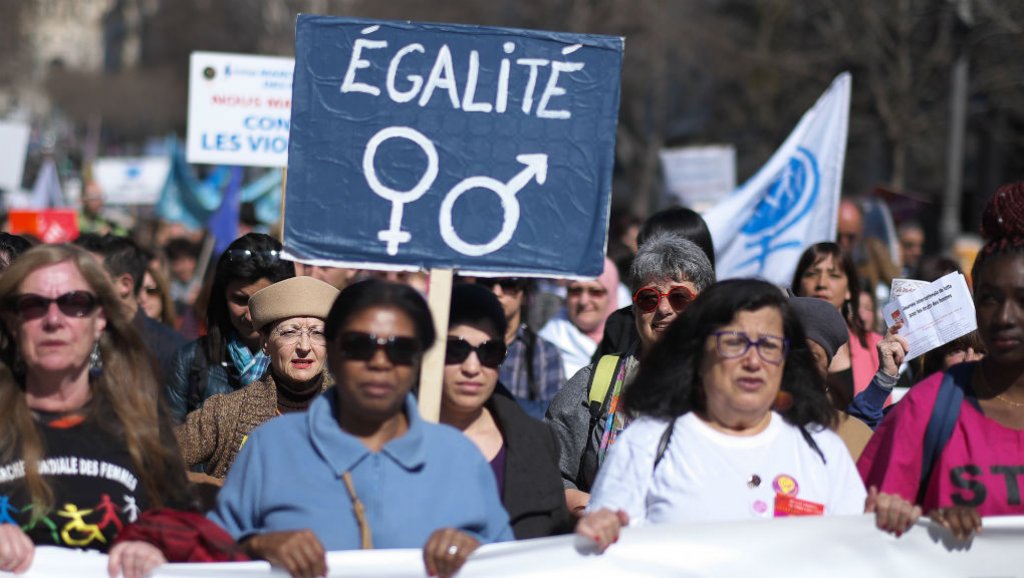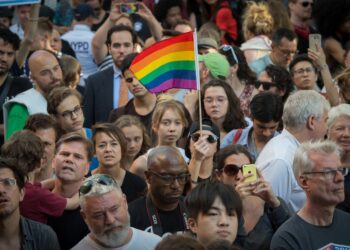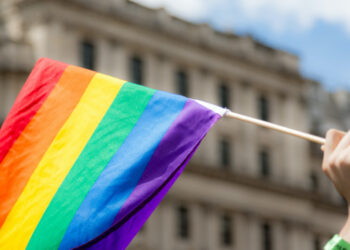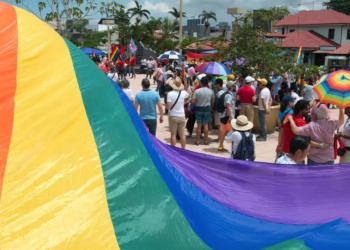The world outside is burning. Not only has the COVID-19 pandemic intensified existing inequalities, it has also made connections between injustice based on gender, race, and socio-economic class more evident than ever.
Women across the two sides of the Atlantic, to begin with, are significantly more likely than men to have lost their jobs following the coronavirus outbreak. With billions confined to their homes, they have also faced a dramatic increase in (unpaid) domestic and care labor. Access to sexual and reproductive healthcare has been restricted in several countries, and domestic abuse has been on the rise globally since the introduction of social isolation measures.
Yet no one seems to have been hit harder than economically disadvantaged, non-white, and sexual minority women.
🏡 is not always a safe place for children, women & older people who are experiencing or are at risk of abuse.
According to our study🔖, domestic violence is likely to increase 📈 during & after the #COVID19 pandemic.
👉https://t.co/3q78WrGfiY #EndViolence pic.twitter.com/nZ3XKVDnlJ
— World Health Organization (WHO) (@WHO) August 4, 2020
Black American women, for example, reportedly faced a shortage of food and household essentials, and struggled to provide their children with the laptops and electronic devices required for distance learning. Black women are also more vulnerable than any other population in the United States to furloughs, job losses, and pay cuts due to the public health emergency.
The picture is almost equally bleak when we consider the virus’ repercussions on lesbian and trans women across the world.
During the last few months, many of them lacked access to healthcare and mental health support, with particularly strong effects on the trans community, which suffered from a suspension of surgeries and specialized health treatments. Older lesbian and trans women were plagued by social isolation, while younger ones often found themselves quarantined within unsupportive or even LGBTQ-phobic households.
Challenges of Cross-Movement Alliances
Like many fellow feminists, I have interpreted these recent trends as yet another demonstration that women’s oppression is sustained and reinforced by other complex inequality patterns.
For this reason, I find it crucial to build alliances between feminist, anti-racist, and other social justice movements. However, within women’s groups around the world, some have started to feel that embracing this view is a dangerous mistake of my generation of activists. In particular, they fear that we might end up diluting women’s very fight for emancipation for the sake of contaminating it with different struggles.

Others have even stronger views on cross-movement synergies, which are finding increasing visibility in public debates globally. Some feminists are worried, for instance, that laws designed to protect LGBTQ+ and particularly trans people may eventually increase women’s vulnerability to abuse. They believe women-only spaces should be reserved to those identified as female by birth, and that legislation centered around the word “gender” (as opposed to biological sex) may undermine efforts towards women-focused policy change.
In the UK, where I live and work, this has already produced painful divisions among feminist groups. In my native Italy, it has even led to a few women’s collectives protesting against the use of the terms “gender” and “gender identity” in the drafting of a much-awaited law, expected to make women and LGBTQ+ people protected categories under hate crime legislation.
Way Forward for Feminist Movements
Now, feminist movements are broad churches, and some would say there are almost as many feminisms as the women who embrace them. Besides, fighting the good fight is never easy. For thousands of years, violations of women’s bodies and fundamental freedoms have been met with impunity, and still today, our cause needs tireless organizing. It is only human to fear that our historical gains might be taken away from us should we let our guard down.
But it is self-defeating to treat human rights as a zero-sum game, where recognizing the grievances of one oppressed group is seen as detrimental to the position of another. And the point is not simply that different types of injustice are all equally unacceptable. Rather, it is that the violence and discrimination that women experience cannot be eliminated without dismantling other violent and discriminatory dynamics.

Let’s just think of the stereotypes, social norms, and rigid narratives surrounding what “masculine” is and what “feminine” – a driving force behind gender-based abuse and gender inequalities in private and public life.
It is self-evident that those same stereotypes and narratives are behind the suffering of LGBTQ+ communities, and trans people in particular. Standing at their side, and against homo-transphobic hate, is therefore not simply a show of solidarity. It is, instead, an integral part of our battle for a gender just society.
Equally, it is not merely out of solidarity that we should support anti-racist mobilizations and calls for economic fairness. In fact, while it is certainly true that women’s issues cut across racial and class divisions, our financial system is built around intricate chains of exploitation that are both gendered and racialized.
The advancement of a few (mostly Caucasian) women at the top of their professions may well break ceilings and inspire younger generations. However, women won’t be truly free until those chains are broken, that is, until new, egalitarian, and sustainable ways to reproduce societies and economies finally emerge.
This is why, as feminists, we owe it to ourselves to be entirely honest.
Women’s struggles have changed the world forever, and feminist thinking and organizing are still desperately needed. But if we want to continue fulfilling that radical potential we should not shy away from the painstaking yet all-important work of connecting the dots, building bridges, and forming strong alliances.
Women’s specific grievances must, of course, always be voiced. However, that should never prevent us from fighting aside others for collective liberation.
Disclaimer: The views and opinions expressed here are those of the author and do not necessarily reflect the editorial position of The Globe Post.





















